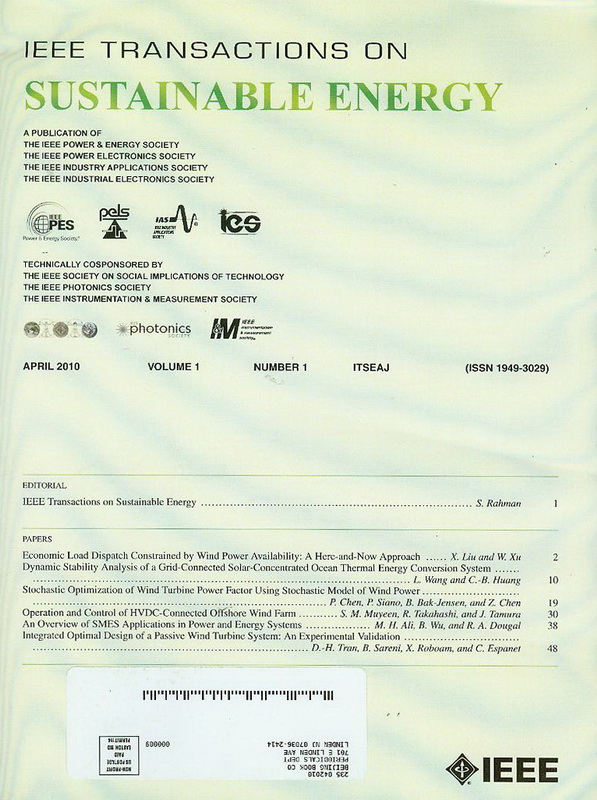基于微型逆变器的光伏系统的自适应多模式单步功率跟踪
IF 8.6
1区 工程技术
Q1 ENERGY & FUELS
引用次数: 0
摘要
传统的去负载功率跟踪算法采用扰动和观察法,在逆变器电压范围内识别工作点的速度、稳定性和有效性方面存在不足。本文介绍了自适应多模式单步功率跟踪(AMSPT)算法,该算法可快速适应不同的太阳辐照条件,同时减少能量损失并提高整体运行稳定性。该算法的主要创新点在于,通过一个步骤就能在逆变器的指定电压范围内有效地精确定位工作点。在达到所需的工作点后,该算法会迅速抑制振荡行为,加快稳定过程,并将设定点附近的偏差降至最低。这篇文章证实了 AMSPT 算法优于现有方法,在各种光伏系统案例研究中展示了跟踪精度、功率波动和能量差异方面的显著进步。通过理论分析、模拟和实验设置进行的全面验证细致地证实了所提方法的优势。本文章由计算机程序翻译,如有差异,请以英文原文为准。
Adaptive Multi-Mode Single-Step Power Tracking for Microinverter-Based Photovoltaic System
The conventional de-load power tracking algorithm, utilizing a perturb and observe method, manifests deficiencies in terms of speed, stability, and efficacy in identifying operating points within the inverter's voltage range. In this article, the Adaptive Multi-Mode Single-Step Power Tracking (AMSPT) algorithm is introduced, showcasing rapid adaptability to varying solar irradiation conditions, while mitigating energy losses and enhancing overall operational stability. Its key innovation lies in efficiently pinpointing the operating point within the inverter's specified voltage range through a single step. Upon achieving the desired operating point, the algorithm promptly suppresses oscillatory behavior, expediting the settling process and minimizing deviations around the set-point. This article substantiates the superiority of the AMSPT algorithm over existing methods, showcasing remarkable advancements in tracking accuracy, power fluctuations, and energy discrepancies across diverse PV system case studies. Comprehensive validation through theoretical analysis, simulations, and experimental setups meticulously confirms the claimed benefits of the proposed method.
求助全文
通过发布文献求助,成功后即可免费获取论文全文。
去求助
来源期刊

IEEE Transactions on Sustainable Energy
ENERGY & FUELS-ENGINEERING, ELECTRICAL & ELECTRONIC
CiteScore
21.40
自引率
5.70%
发文量
215
审稿时长
5 months
期刊介绍:
The IEEE Transactions on Sustainable Energy serves as a pivotal platform for sharing groundbreaking research findings on sustainable energy systems, with a focus on their seamless integration into power transmission and/or distribution grids. The journal showcases original research spanning the design, implementation, grid-integration, and control of sustainable energy technologies and systems. Additionally, the Transactions warmly welcomes manuscripts addressing the design, implementation, and evaluation of power systems influenced by sustainable energy systems and devices.
 求助内容:
求助内容: 应助结果提醒方式:
应助结果提醒方式:


